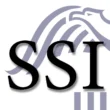SSI Recipients to Get Much-Needed Relief from Overly Strict Rule
April 2, 2024
Late last month the Social Security Administration (SSA) published a new rule which will benefit thousands of SSI disability beneficiaries.
With the finalization of this rule, the SSA will no longer consider food expenses in their in-kind support and maintenance (ISM) calculations. This change removes a critical barrier that resulted in some individuals with disabilities being denied benefits and reduced the benefit amounts for others.
Social Security has two programs which offer assistance to Americans with disabilities: Social Security Disability Insurance (SSDI) and Supplemental Security Income (SSI).
SSI is based on financial need, not work credits. The Social Security Administration says, “It is designed to help aged, blind, and disabled people, who have little or no income.”
SSI disability benefits are for individuals with health limitations who have never been able to work or who have worked but haven’t earned enough work credits to qualify for SSDI benefits.
The Supplemental Security Income program has stringent eligibility requirements that until now haven’t been adjusted for decades. (For more on this topic, see Tom Nash’s informative blog article, “Congress Must Raise SSI Asset Limits”.)
The maximum SSI benefit is a paltry $943 per month for an individual (which is about 25% below the current federal poverty level). The finances of SSI beneficiaries are subject to intense scrutiny by the government, including a requirement to give the government permission to monitor their bank accounts.
Up to now, an SSI beneficiary also had to report if somebody outside their household helped them by paying some or all of their food or shelter costs.
The SSA considers this in-kind support and maintenance a form of income—a key factor in determining eligibility and payment levels for SSI. If a beneficiary is receiving ISM, their benefit amount can be slashed by as much as one-third, meaning a $314-a-month reduction for those earning the maximum benefit.
However, beginning in September 2024, the SSA will no longer consider food expenses in their ISM calculations. Instead, they will “consider only shelter expenses (i.e., room, rent, mortgage payments, real property taxes, heating fuel, gas, electricity, water, sewerage, and garbage collection services).”
The SSA clarifies that, “though we are omitting food expenses from our ISM calculations, we will still ask a question about food for the narrow purpose of determining whether to use the Value of the One-Third Reduction (VTR) rule or the Presumed Maximum Value (PMV) rule.”
While the food question still exists, the final language streamlines the needed information from three questions down to one.
In a press release, the SSA said, “The new policy removes a critical barrier for SSI eligibility due to an applicant’s or recipient’s receipt of informal food assistance from friends, family, and community networks of support.”
“The new policy further helps in several important ways: the change is easier to understand and use by applicants, recipients, and agency employees; applicants and recipients have less information to report about food assistance received from family and friends, removing a significant source of burden; reducing month-to-month variability in payment amounts will improve payment accuracy; and the agency will see administrative savings because less time will be spent administering food ISM.”
The disability lawyers at Nash Disability Law applaud this change.
This is a positive step in the ongoing fight to reduce the obstacles that SSI recipients face in accessing their benefits. We have long advocated for common sense changes to protect beneficiaries who have rightfully earned their benefits due to disabilities caused by illnesses or injuries.
While this rule change is a help, winning Social Security Disability benefits remains a long and difficult road to navigate. If you want a knowledgeable and effective disability lawyer to guide you and fight for your rights, partner with us at Nash Disability Law.
We’ll give you a free evaluation of your unique situation, and if you hire us we only get paid when you win your case. It’s easy to get started, just call or email us today.


